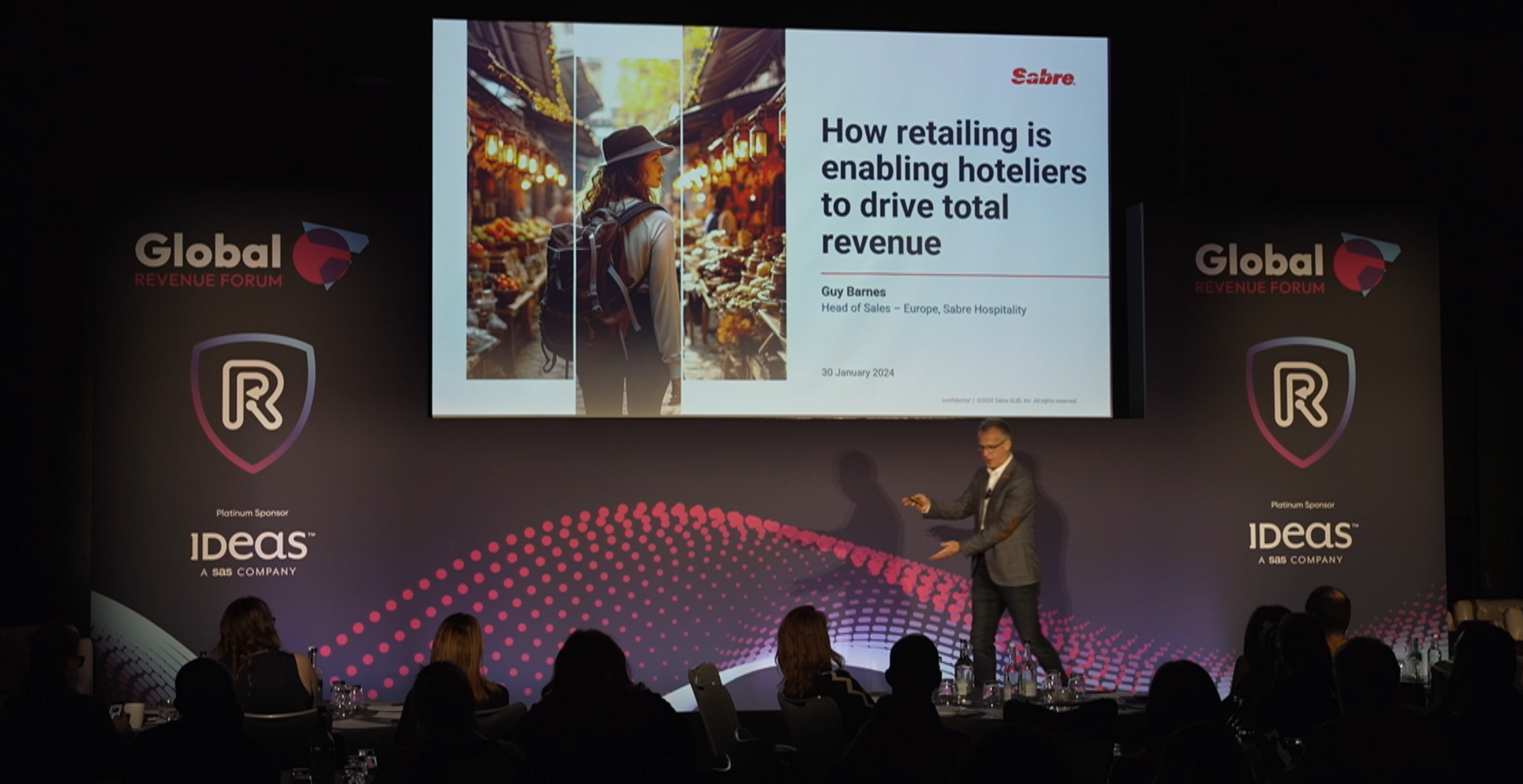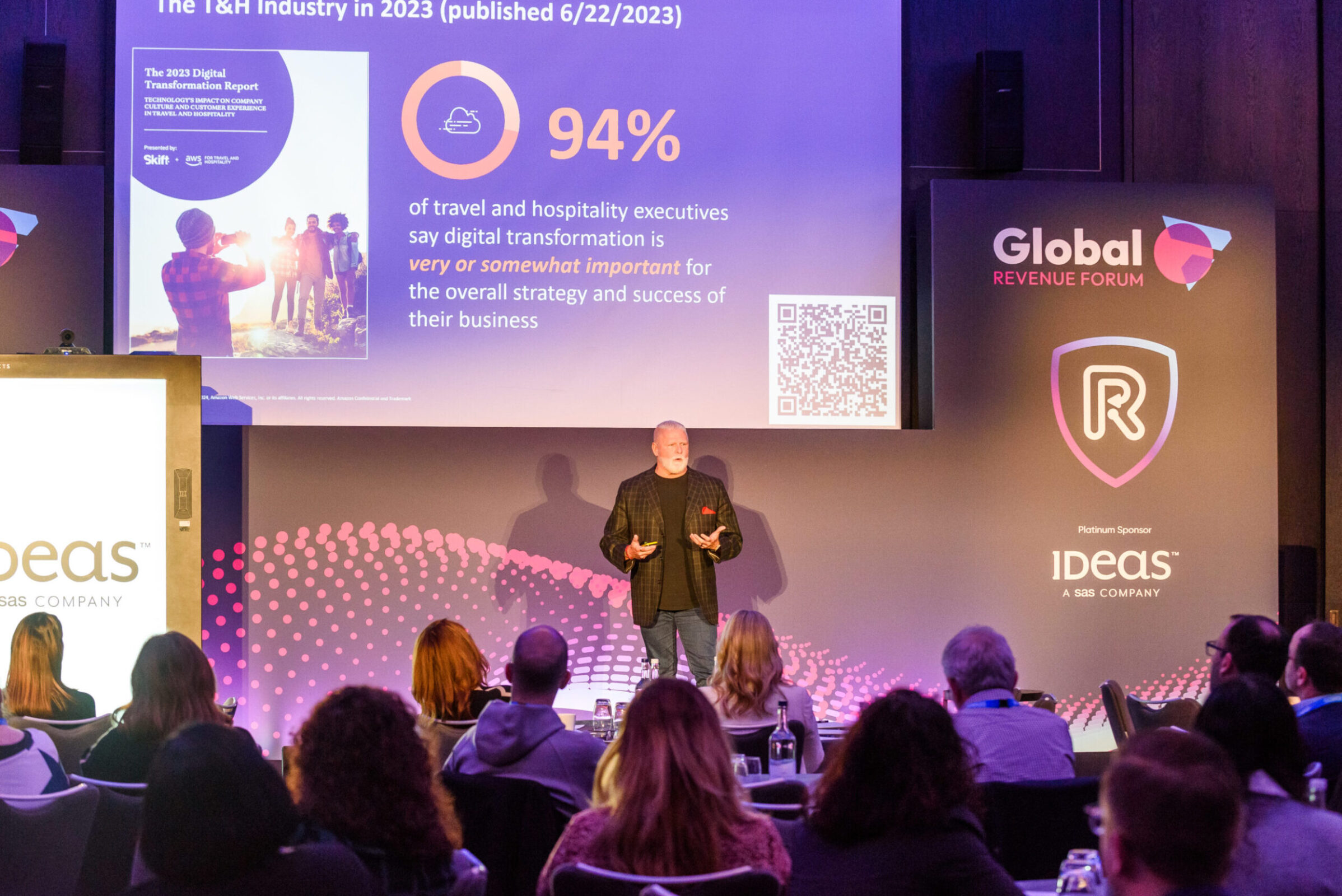The impact of mobile on revenue presentation – download the pdf here.
This is the presentation given to AICR members at their annual revenue management meeting back on 18th May. It’s the third year we’ve presented at AICR, it’s a great organisation, fab audience and we always have a lot of fun. So thank you to Corinne Bellaby who organised such a great event at a fantastic location – the St Pancras Renaissance London.
This year our focus was on the impact of mobile communications platforms on Revenue management. The first few slides focus on the growth of mobile to set the scene; if you want more information on these to back up your own mobile discussions then here are the sources I used:ComScore MobiLens monthly reports – http://bit.ly/jPc6PI, Social Local Mobile– PhoCusWright – http://bit.ly/ixaQ6X, Pyramid research – Great for backing up any mobile claims you need and here specifically “Why Windows will beat Android” – http://bit.ly/l83QA7, Neilson “Smartphones to overtake featurephone in US by 2011” infograhic – also old but looks good… http://bit.ly/laDv9j., Top 10 Consumer uses for mobile in 2012 – this is old but interesting – and didn’t get in the presentation – http://bit.ly/9xeGyN
So with that out of the way what is the impact of mobile on revenue management? Our key points were as follows:
Offsite and Onsite strategy: Think about what mobile will do from a broad perspective and include marketing revenue and technology strategies. Create a mobile strategy that encompasses what you want to do on site and offsite, and for all customer interactions. Whilst we are approaching this with a revenue management focus a huge proportion of mobile activity relates to customer services with the trick being to make it a seamless experience as guests transition from off site to on site. Once you have an off site mobile presence, guest expectations are raised that the level of interaction and personalised experience will be the same once they check in.
Managing offsite mobile communications : Your off site mobile presence represents both a communications and transactional channel. Transactional in terms of a mobile web or App browse and book capability, and also through QR codes (Quick Response Codes, developed in Japan are a specific matrix barcode or two-dimensional code, readable by dedicated QR barcode readers and camera phones – I digress – they are fun – so see the wiki definition for more info).
Scanning or reading a QR code from a camera-enabled Smartphone, enables links to web content, and can also launch phone functions such as text or email. This is a great opportunity to capture fans and continue communications when guests are not necessarily in browsing mode.
Managing On site communications: On site mobile strategies take guest communications to the next level with two way SMS opt in campaigns driving a new dimension in marketing and guest services throughout the property. Remember to align your on site with off site activity so the guest isn’t surprised by a completely different tone of voice, and ensure offers are comparable.
The key revenue implications
Tracking last minute booking windows: This is likely to differ according to guest and hotel type. In the first quarter following the launch of their mobile app in 2011, Premier Inn reports a healthy uplift in same day/end of day bookings from on the road business travellers whose travel plans have changed last minute. Some may have normally used the call centre to change plans but the vast majority were incremental bookings- i.e. bookings from guests that they would not otherwise have had. Other hotel companies report no change in booking windows but still enjoy incremental bookings. Priceline report that 80% of bookings on their mobile app are for same day transactions.
Monitoring and optimising search & browsing patterns. Hilton and others report that these flip from desktop to mobile at weekends and evenings. The key being to understand which type of guest prefers which platform and to understand what buying mode they are in.
Last minute pricing : Optimising last minute pricing represents a new dimension where booking windows can narrow down to a guest standing outside the property and checking rates. Our discussions with hotels reflect different schools of thought from offering spot pricing to optimise rate according to last minute demand through to ensuring price parity across all channels and all platforms.
Customer ownership :Your hotel’s presence in the mobile world is just as important as the web world. Owning the customer is critical in such a highly personalised medium. All the OTAs will be fighting just as hard for customer ownership so once you are given the chance to be part of your guests personal mobile world make sure you remain the channel of choice.
Ancillary revenue tracking & Customer profitability: I think this is going to represent a huge change in the way we manage ancillary revenues including those provided in house and those provided by third parties An upside of QR codes and contactless technology is the ability to take and track payments, making revenue management across all revenue streams far more viable than previously. Now is the time to set up tracking reports to monitor total guest revenues, and include this in forecasting, demand management and pricing strategies.






